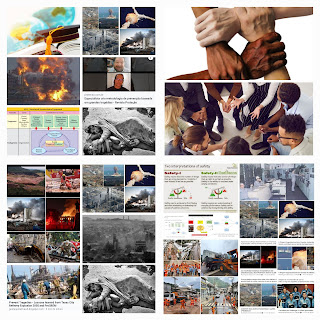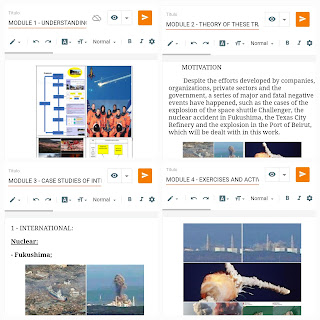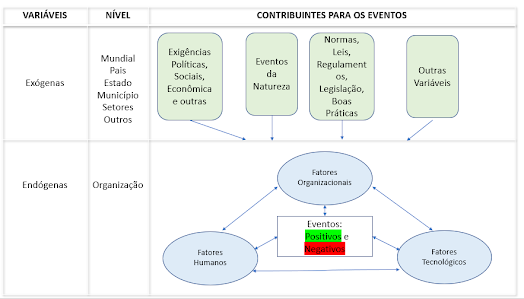MODULE 1 - UNDERSTANDING AND PREVENTING TRAGEDY
PREFACE
Dear,
Do you want to improve the essential issues for Risk Management and Tragedy Prevention (Major, Fatal and Serious Accidents), through the Proactive Safety Approach, in your organization, company, service, or activity, with the aim of improving the way of thinking a Tragedy Prevention Environment?
It is important to look into these issues and deepen academic studies, with application in companies, to develop proposals to avoid these tragedies.
It is essential to present models, principles, and structured forms, together with lessons learned from Major and Fatal Negative Events, which facilitate the analysis of these tragedies, which is why I created the Risk Management and Tragedy Prevention Course, through the Proactive Safety Approach
I developed the Proactive Safety Approach, in my Ph.D. in Production Engineering, in progress, at COPPE/UFRJ, with the aim of Preventing Major, Fatal and Serious Accidents.
The Proactive Security Approach complements traditional risk assessments.
I used the academic bases to develop the Proactive Safety Approach: Ergonomics, Resilience Engineering, and Integrated Management Systems (Quality, Safety, and Environment), among other methods and tools.
My database to build this proposal was the major and fatal negative events, prominent abroad and in Brazil, this database, is hosted on the internet, with free access.
I apply this methodology at Fiocruz, where I am a civil servant, and in organizations, companies, sectors, and activities.
Through the process of study and application of the Proactive Safety Approach, Certificates of Initial, Intermediate, and Advanced Training of this Approach are obtained
Initial Training is developed through a mentoring process of meetings and studies, of the 4 proposed modules (see link at the end of this post), and allows you to start understanding the Proactive Safety Approach.
The Intermediate and Advanced Training are obtained with the development of a mentoring process and the application of the Proactive Security Approach in an organization, company, activity, and service, the Advanced Training will enable you to be a qualified multiplier, and apply this methodology in organizations and companies.
The Risk Management and Tragedy Prevention Course is validated by senior, full, and junior professionals for the issue of preventing tragedies/risk management.
For senior professionals and specialists in the subject of Risk Management, the Preventing Tragedies Course serves to reflect and debate the subject, for full professionals it serves as a deepening, for junior professionals and students, it serves as a starting point for approaching the subject. of Risk Management.
I take this opportunity to thank the many collaborations and the new friends and partners that I have made in this research work in Risk Management, which already has many professionals in the security area trained in the issue of the Prevention of Negative and Major Events.
With the Internet tool, this work has already been disseminated to thousands of professionals, the modules of this training and the posts on the Proactive Management Blog, have already reached the mark of one million awareness, in Brazil and abroad.
CASE STUDIES FROM ABROAD
Some of the Case Studies of Major Negative Events, as this list is constantly being updated:
International:
Seveso, Fukushima, Challenger, Columbia, Texas City Refinery, Port of Beirut Explosion, Bophal, Air France 447, Piper Alpha, Deep Water Horizon Platform, Boeing 737 Max.
Figure - Major Negative Events, Fukushima, Challenger and Explosion in the Port of Beirut





Comentários
Postar um comentário